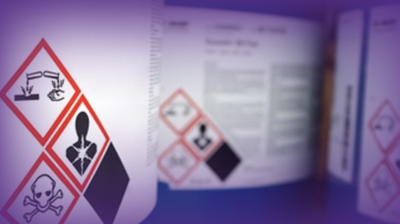
Orange County Workplace Brain Injury Attorney
Fighting For Traumatic Brain Injury Victims in the Workplace
Traumatic brain injuries occur when an individual experiences a violent blow to the body or head from an external force. This is different from a head injury, as it involves internal damage to the brain. Because the brain controls the thoughts, emotions, and even physical capabilities, traumatic injuries can alter an individual's demeanor, ability to perform everyday functions, and even capacity to work and earn a living.
Traumatic brain damage can occur due to burst blood vessels or concussions. It can also occur in the aftermath of initial trauma due to lack of blood flow, which is often more dangerous and capable of causing more fatalities.
Call us today at (800) 980-6905 or contact us online to schedule a consultation with our workplace brain injury lawyer in Orange County.
How Our Orange County Brain Injury Lawyer Can Help
When you or a loved one experiences a brain injury at work, the road to recovery involves not only medical treatment but also navigating a complicated legal process. An Orange County brain injury attorney can provide critical support throughout your claim, helping you understand your rights under California workers' compensation law and identifying all sources of potential compensation.
Consulting with a legal team that understands the unique aspects of local regulations and has experience with cases at the Orange County Superior Court can be highly beneficial. This familiarity ensures your claim is handled efficiently, especially when dealing with insurers and employers in the region. Your attorney manages paperwork, works with your healthcare providers to gather medical evidence, and advocates for you in both negotiations and, if necessary, at hearings or trials in local courts.
If you are recovering from a brain injury, consider these reasons to work with qualified legal counsel:
- Knowledge of local systems: Attorneys with experience in Orange County are familiar with area hospitals like UC Irvine Medical Center and regional specialists who treat traumatic brain injuries.
- Tailored strategy: Your legal team can develop strategies specific to workplace hazards and employer practices common to local industries such as construction, shipping, and healthcare.
- Maximizing available benefits: A seasoned brain injury lawyer in Orange County ensures you pursue all available legal avenues, including workers' compensation, potential third-party claims, and long-term disability resources.
Working with the right attorney gives you the tools and guidance you need to focus on recovery while your legal team handles the complexities of your case. Legal support can make a difference in the outcome of your benefits and the impact on your long-term quality of life.
What Compensation Can I Recover?
Due to the severely debilitating nature of TBIs, those who are afflicted are almost always unable to return to work after their accident. Under California law, those who suffer TBIs as a result of workplace accidents can seek disability benefits under their employer’s workers’ compensation insurance. These benefits can cover a wide range of losses related to on-the-job injuries and will vary in amount depending on the extent of a person’s injuries.
Compensation can be awarded for the following:
- Medical expenses
- Lost income
- Pain and suffering
Disability Insurance for Workers with Brain Injuries
Most brain injuries result in permanent injuries and symptoms, as mentioned. You could be limited in your ability to hold gainful employment for the rest of your life because of one workplace accident. If you suffered a brain injury at work, you should consider workers’ compensation benefits and disability benefits that might become available to you later.
Workers’ compensation benefits will only last so long before they expire or your benefits reach a cap. At that point, you might be able to utilize disability insurance (DI) benefits that help you remain financially stable for years to come.
A few things to consider about disability insurance for work-related brain injuries:
- In most cases, a claimant cannot receive benefits from disability insurance and workers’ compensation at the same time. Usually, workers’ compensation benefits are used up before moving to disability insurance, but not always.
- The physician who has diagnosed your brain injury can also help determine if it was related to your workplace accident. Be sure to ask them to note in your medical records if they think this causation exists.
- Disability insurance can be provided by the same company that provides your workers’ compensation coverage and benefits. Or you might end up using a separate disability insurance coverage unrelated to that company, such as those provided through the Social Security Administration (SSA).
- DI benefits only last 52 weeks or one year unless your brain injury causes a predictably permanent disability like it probably will. Medical evidence of your disability can extend DI benefits to up to 10 years or until you reach the age of retirement.
- If you receive Social Security Disability (SSD) benefits until you are 65, you can then qualify for Social Security retirement benefits to continue getting much-needed financial support.
Our attorneys focus on the workers’ compensation aspects of brain injury claims, but it is important that you understand how disability insurance might become relevant to your claim, too. We would be happy to help you however we can.
What Is a Brain Injury?
A traumatic brain injury (TBI) is a condition caused by a sudden external force that results in damage to the brain. TBIs can range from mild to severe, and they can have a significant impact on an individual's physical, cognitive, emotional, and behavioral functioning. Common causes of traumatic brain injuries include falls, motor vehicle accidents, sports injuries, and assaults.
The most common types of brain injuries include:
- Concussion: A mild form of TBI that often results from a blow to the head or sudden deceleration of the body. Concussions may cause temporary loss of consciousness, confusion, and memory problems.
- Contusion: This refers to a bruise on the brain's surface, usually caused by a direct impact on the head. Contusions can lead to bleeding and swelling, affecting brain function.
- Penetrating injury: Occurs when an object pierces the skull and enters the brain tissue. Penetrating injuries can cause localized damage and may require surgical intervention to remove the object and repair the injury.
- Diffuse axonal injury (DAI): Results from widespread damage to the brain's nerve fibers (axons) caused by rapid acceleration or deceleration. DAI can lead to widespread brain dysfunction and is often associated with more severe TBIs.
- Coup-contrecoup injury: Involves both a contusion at the site of impact and a contusion on the opposite side of the brain due to the brain rebounding inside the skull after the initial injury.
- Second-impact syndrome: This occurs when a person sustains a second head injury before the symptoms of a previous head injury have fully resolved. It can lead to severe and often fatal consequences.
- Hematoma: Refers to the collection of blood outside the blood vessels, either within the brain tissue or in the space between the brain and the skull. Hematomas can cause increased pressure on the brain and may require surgical intervention.
Where Do Brain Injuries Occur?
Brain injuries in the workplace can occur in various industries and settings, with specific risks depending on the nature of the work involved.
Some common workplace scenarios where brain injuries may occur include:
- Construction sites: Workers in the construction industry are exposed to various hazards, such as falling objects, machinery accidents, and falls from heights. Head injuries can result from these incidents, leading to traumatic brain injuries.
- Manufacturing: Employees in manufacturing plants may face risks associated with heavy machinery, equipment malfunctions, or exposure to hazardous materials. Accidents involving machinery can cause head injuries, especially if workers are not wearing appropriate protective gear.
- Transportation: Workers involved in transportation, including truck drivers, delivery personnel, and those working with heavy equipment, may be at risk of traumatic brain injuries due to vehicle accidents or collisions.
- Agriculture: Farmworkers face potential hazards such as falls, machinery accidents, and being struck by objects. Injuries to the head can occur during activities such as operating tractors, handling equipment, or working with livestock.
- Healthcare: Healthcare professionals, particularly those working in emergency rooms or with high-risk patients, may encounter situations where they are at risk of exposure to violence, falls, or accidental needle sticks, all of which could lead to head injuries.
- Mining: Miners are exposed to various dangers, including cave-ins, falling debris, and machinery-related incidents. These risks make them susceptible to traumatic brain injuries if proper safety measures are not in place.
- Retail and warehousing: Workers in retail or warehouse environments may be at risk of head injuries due to falling objects, slips, trips, and falls. Poorly stacked merchandise or inadequate safety protocols can contribute to such incidents.
- Professional sports: While not a traditional workplace, athletes in professional sports can sustain head injuries during training or competition. Contact sports, in particular, pose a risk of concussions and other traumatic brain injuries.
If you or a loved one has suffered brain trauma due to a workplace accident, it is crucial to seek immediate medical attention, as the situation may be life-threatening.
When your medical needs have been attended to, hiring a well-informed workers' comp lawyer is vital for obtaining fair and adequate monetary compensation.
Symptoms of a Traumatic Brain Injury
Brain injuries can lead to extensive and non-reversible brain damage that severely affects both victims and their families for the rest of their lives.
Some common symptoms of brain injury include:
- Headaches: Persistent or severe headaches are common after a brain injury.
- Nausea and vomiting: These symptoms may occur shortly after the injury or develop over time.
- Fatigue: Individuals may experience excessive tiredness, even with adequate rest.
- Dizziness and balance issues: Problems with coordination and balance are common.
- Confusion: Disorientation and difficulty concentrating or focusing.
- Weakness or paralysis: Loss of strength or function in certain muscles or limbs.
- Tremors or seizures: Involuntary movements or convulsions.
- Blurred or double vision: Visual disturbances affecting clarity or perception.
- Ringing in the ears (tinnitus) or changes in hearing.
- Loss of taste or smell: Altered or diminished sensory perceptions.
Common Effects of TBI
A TBI can result in varying levels of debilitation depending on the specific area of the brain that is affected. People afflicted with severe TBIs often cannot fully recover from their injuries, requiring round-the-clock care after their accident. While some function can be restored over time with extensive therapy, returning to a fully functioning state is often impossible.
TBIs can cause any combination of the following permanent effects:
- Reduced cognitive function
- Amnesia
- Limited sensory processing
- Loss of communication skills
- Personality changes
In some cases, TBIs can cause victims to fall into a coma or a vegetative state. Despite modern advancements in medical technology, there is no cure to repair damaged brain tissue. If you or a loved one have been affected by TBI, it is important that you contact a highly knowledgeable workers’ compensation lawyer from our firm to seek fair and adequate monetary compensation.

See Our Success Stories
-
 $5,400,000 Tree Trimming Accident
$5,400,000 Tree Trimming AccidentSecured $5,400,000 for a client injured following a tree trimming accident.
-
 $4,400,000 Construction Site Accident
$4,400,000 Construction Site AccidentAchieved $4,400,000 for a client harmed in a construction site incident.
-
 $1,500,000 Construction Site Accident
$1,500,000 Construction Site AccidentWon $1,500,000 for a client involved in a worksite accident.
-
 $850,000 Roofing Injury
$850,000 Roofing InjuryObtained $850,000 for a client involved in a roofing injury case.
-
 $700,000 Office Work Injury
$700,000 Office Work InjuryObtained $700,000 compensation for a client who suffered an office-related injury.
-
 $700,000 Chemical Exposure
$700,000 Chemical Exposure
Contact Our Workplace Brain Injury Attorney in Orange County Today
Our team of workers' comp attorneys at Alvandi Law Group understands how important it is for you to be able to support yourself and your family through this difficult time. We also know that many families struggle to pay the bills when a family member is injured. This is why we only charge you after we win your case. If we don't win, then you don't pay us. We invite you to speak with us about your case and learn what your options are at this time. We can also answer any questions you may have about the claims process. Our team can guide you throughout the entire process, so you will never feel lost or alone.
Contact us at (800) 980-6905 to learn how our orange County workplace brain injury attorney can help with your claim. Se Habla Español.







